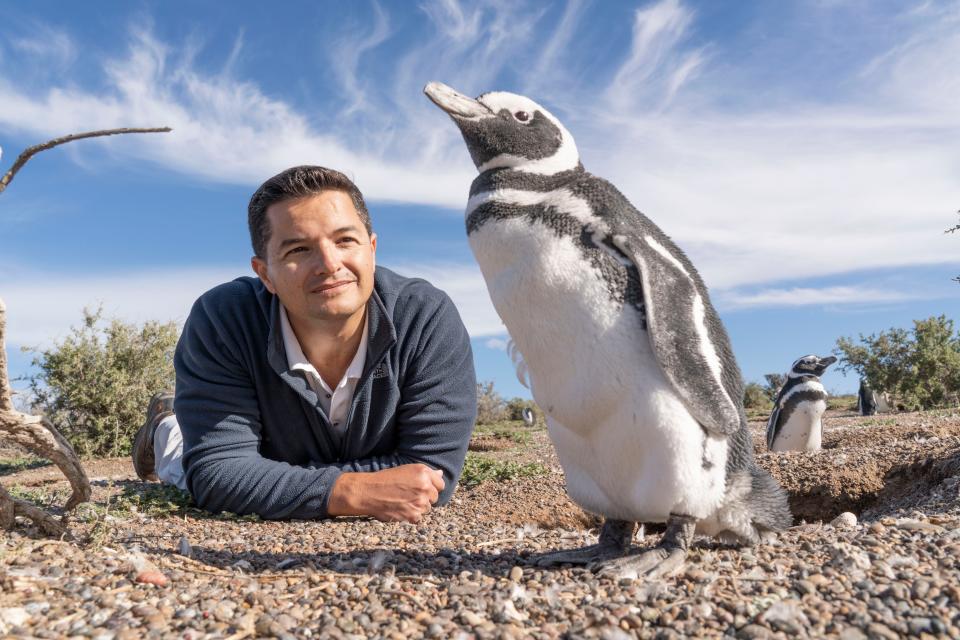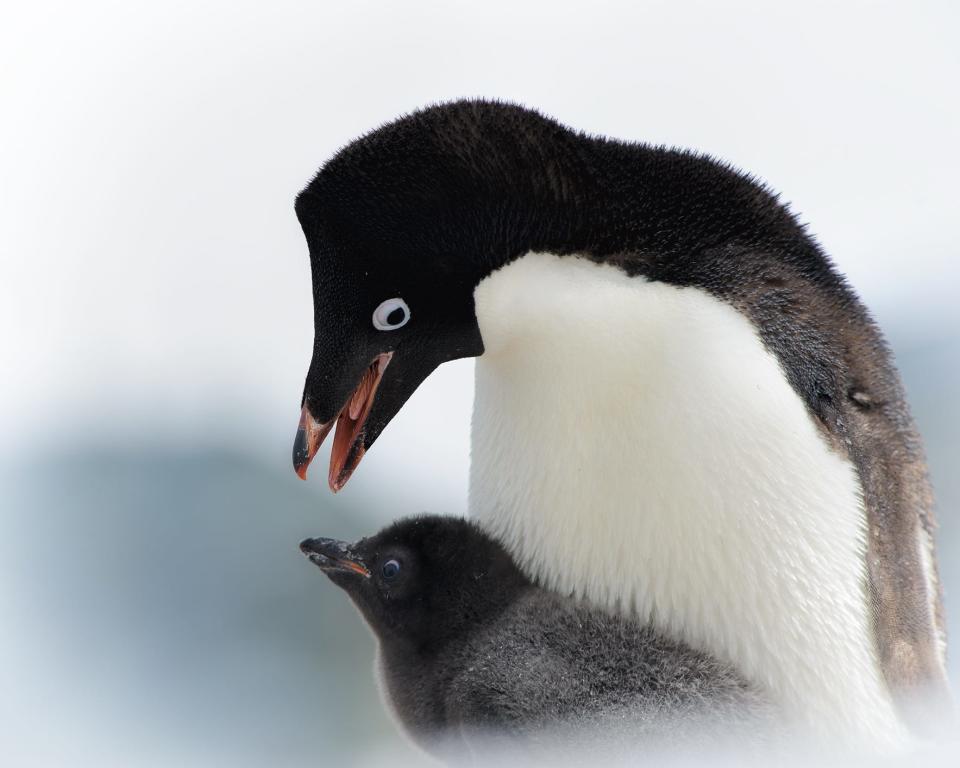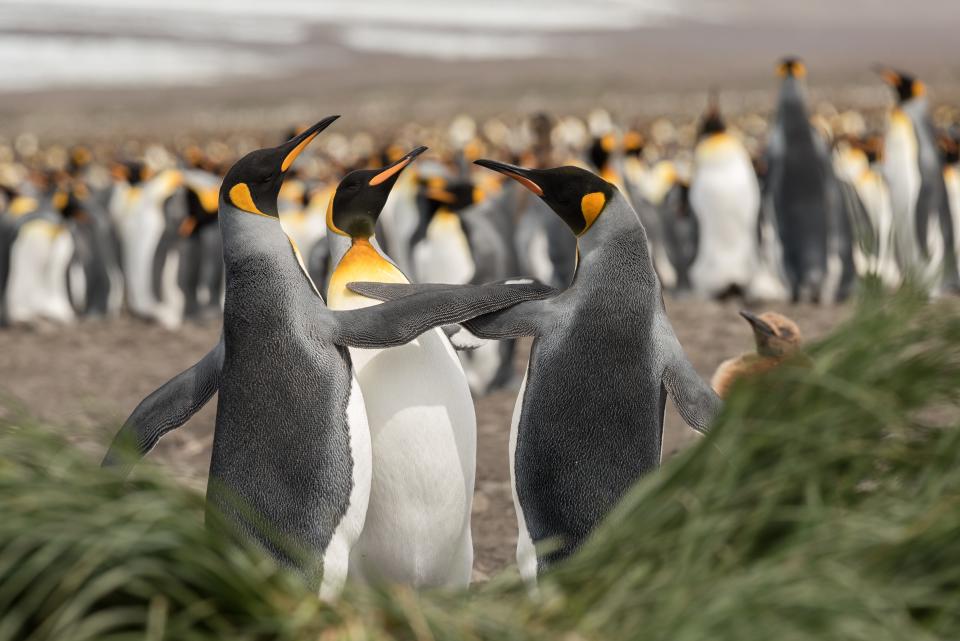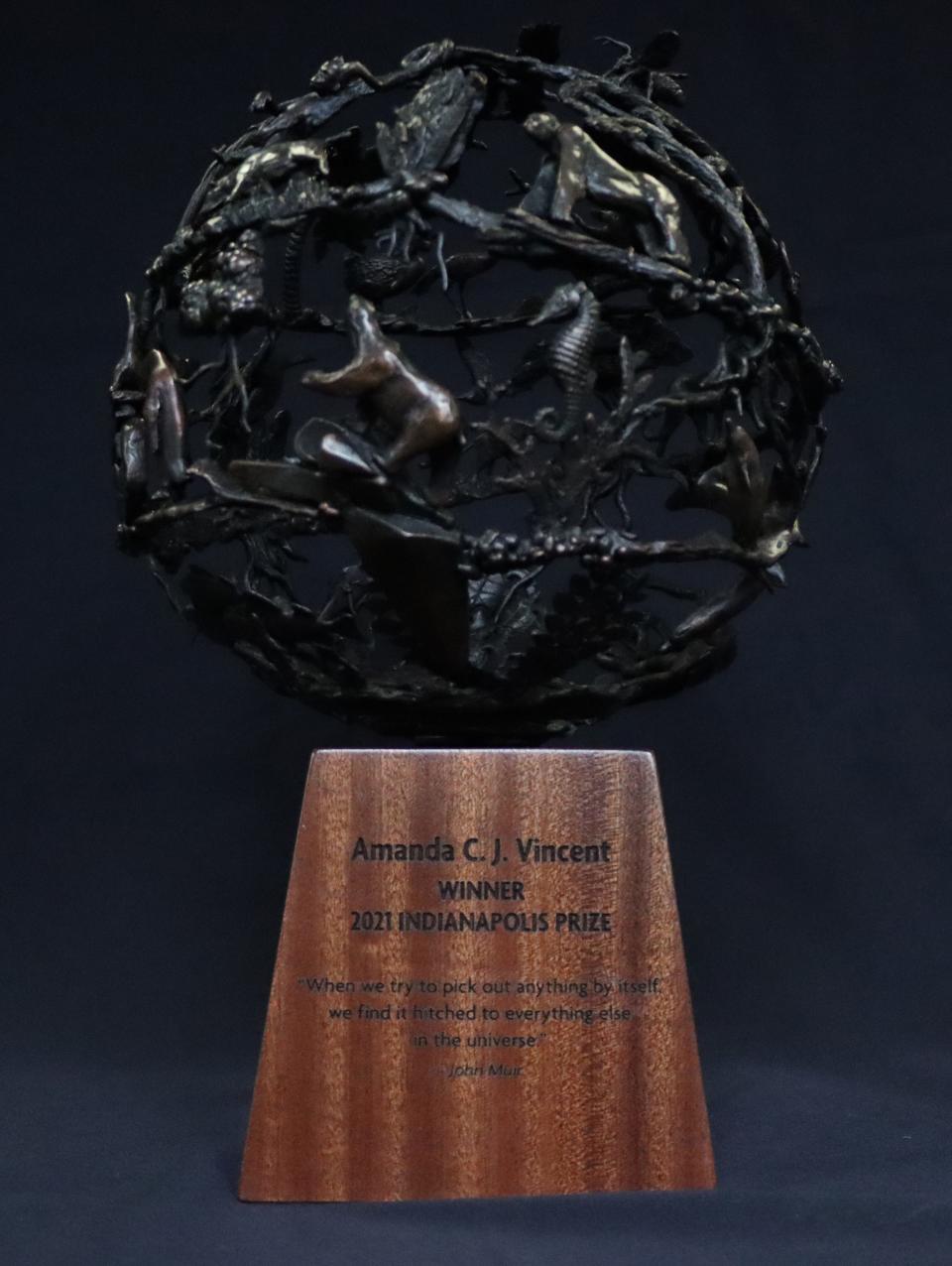Indianapolis Prize goes to penguin protector
Pablo Borboroglu, founder of the Global Penguin Society, is the ninth winner of the globally renowned Indianapolis Prize for animal conservation, officials announced today in London.
The Indianapolis Zoological Society selected Borboroglu, the first winner from South America, from a pool of 51 nominees and six finalists. Borboroglu, from Argentina, will receive an unrestricted $250,000 grant for his efforts to protect penguins and their habitat.
“Dr. Pablo Borboroglu is responsible for major achievements in understanding penguin behavior and ecology,” Rob Shumaker, president and CEO of the Indianapolis Zoological Society, said in a statement. “He has preserved millions of acres of critical penguin habitat, which is an astonishing achievement. He is a powerful, optimistic and expert voice for animal conservation and is extremely deserving of this year’s Indianapolis Prize.”

Borboroglu founded the Global Penguin Society in 2009, and now serves as president of the group that has protected 32 million acres of penguin habitat. The Indianapolis Prize announcement came as a surprise, he said in an interview with IndyStar.
“I’m really honored and grateful for this recognition,” Borboroglu said. “I feel so honored and a sense of accomplishment. I’ve dedicated all my life to this. I’ve spent 34 years working on protecting penguins.”
2023 Indianapolis Prize nominees: Indianapolis Zoo announces nominees for worldwide wildlife conservation prize
The international award legitimizes and validates his work, Borboroglu said, and confirms his efforts are aligned with the global priorities. The recognition will also opens a lot of political doors.
Most penguin habitat is in developing countries, he said, so they share the same realities of underfunding as the humans who also live there. Being recognizes for his work, and the grant that comes with it, will help speed up conservation efforts for penguins.
Life of a penguin protector
Borboroglu’s fascination with penguins began when he was only two. His grandmother would describe her trips to Patagonia and the penguins she would see there. Those stories captured Borboroglu’s emotions, he said, and really connected him to nature.
This love and connection did not immediately solidify Borboroglu’s career path. He first had dreams of becoming and ambassador. He began studying different languages and law in the 1980s, but soon realized being a lawyer wasn’t for him.

It was during that time that a huge oil spill rekindled his interest in penguins. Around 40,000 penguins were dying each year due to oil spills, and after a rather large spill, he fashioned an agreement with the government to set up a rehabilitation center.
That prompted the attention of the media and shone a light on the plight of the dying penguins.
“Back then, politicians were really not believing that there was an issue,” Borboroglu said. “It was normal for people to go to the beach and find dead penguins. It was part of the landscape.”
Quick read: 10 things you don't know about the Indianapolis Prize
That large oil spoil, and Borboroglu’s efforts to save penguins, enabled him to increase awareness and later work with several organizations to get oil tankers to move farther off the shorelines. That, coupled with new technology that detects spills quickly, drastically reduced the amount of dying penguins from 40,000 each year to no more than 20.
Borboroglu said that good news is important to share because the public often perceives conservation efforts as depressing and overwhelming.
“There are a lot of good messages," he said, "and it’s very, very important to share those messages to inspire people and let them know it is key to get involved in whatever action related to conservation we can.”
This time in the 1980s helped solidify Borboroglu’s path to a career working with penguins, leading him to work to protect those 32 million acres, both on sea and land. He estimates a minimum of 2.5 million penguins have benefitted from those efforts, and he is currently working to protect another 600,000 acres in Patagonia.
Borboroglu’s shining achievements
Through a long and fulfilling life working on conservation, Borboroglu said one highlight has been the creation of Patagonia Azul, or Blue Patagonia, a UNESCO biosphere reserve in Argentina.

The area, roughly the size of Maryland, is home to 40% of the global population of the Magellanic penguin.
“It’s still the largest protected area of that kind in Argentina and protects almost 800 species,” Borboroglu said.
The area includes huge, amazing islands, he said, and the international recognition is important because it helps generate layers of protection. The efforts took coordination with local communities, governmental ministers and working with UNESCO in Paris.
Borboroglu’s conservation work has also led him to begin passing on his love and connection with nature to future generations. He’s put together an education program through the Global Penguin Society that has reached more than 200,000 people across Latin American countries. He’s also expanded his work into New Zealand and other countries to protect penguin populations around the world.

“Pablo’s commitment and dedication to protecting penguins is unwavering,” Edward Whitley, founder of the Whitley Fund for Nature, said in a statement. “His decades of perseverance, research and leadership are profoundly inspiring to us all.”
A new prize: Indianapolis Zoological Society names winner of inaugural Emerging Conservationist Award
What’s next for the Indianapolis Prize
The Indianapolis Zoological Society also will name five finalists for the prize, each receiving $50,000. Earlier this year, the society announced the winner of the inaugural Emerging Conservationist Award. That new award and $50,000 went to Fanny Cornejo, a young primate conservationist from Peru.

The prizes are the largest monetary award in the world for efforts supporting animal conservation and recognizing those working to save an animal species or multiple species from extinction.
Borboroglu, the five finalists, and Cornejo will be honored in Indianapolis Sept. 30 at the Indianapolis Prize gala.
Karl Schneider is an IndyStar environment reporter. You can reach him at karl.schneider@indystar.com. Follow him on Twitter @karlstartswithk
IndyStar's environmental reporting project is made possible through the generous support of the nonprofit Nina Mason Pulliam Charitable Trust.
This article originally appeared on Indianapolis Star: Indianapolis Prize winner protects penguins in Argentina

